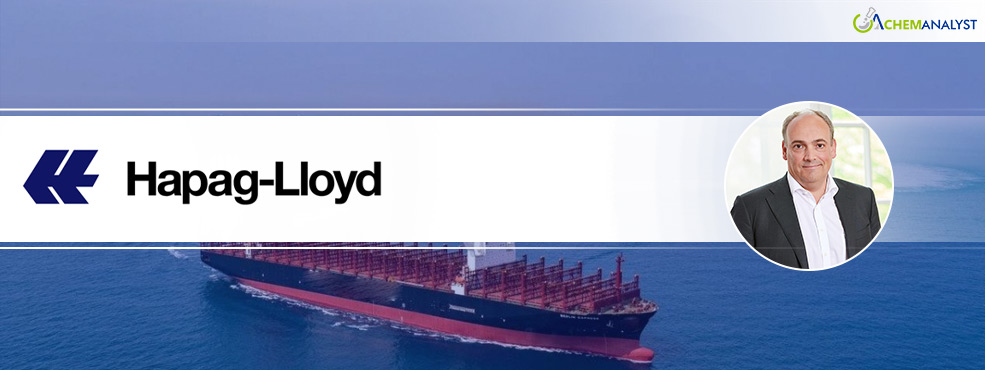Welcome To ChemAnalyst

Hapag-Lloyd, one of the world’s leading container shipping companies, has concluded a pivotal offtake agreement for the procurement of green methanol, marking a significant milestone in its commitment to decarbonizing its fleet and aligning with global sustainability objectives. The green methanol, which will be a blend of bio-methanol and e-methanol—produced using renewable electricity—offers an impressive greenhouse gas (GHG) emission reduction of at least 70% compared to conventional marine fuels. This initiative underscores Hapag-Lloyd’s robust strategy for a greener and more sustainable shipping future.
This green methanol agreement is a cornerstone of Hapag-Lloyd’s ambitious target to reduce the absolute GHG emissions of its fleet by approximately 30% by 2030, relative to 2022 levels. With this step, the company is on track to significantly curtail its carbon footprint, contributing to the global maritime industry's shift toward decarbonization. When fully integrated into Hapag-Lloyd's fleet operations, the green methanol will result in the avoidance of up to 400,000 tonnes of CO2e emissions annually, reinforcing the company’s commitment to sustainability while maintaining operational efficiency.
The green methanol will be a key enabler for Hapag-Lloyd’s transformation into a multi-fuel future, leveraging cutting-edge, alternative fuel technologies. This commitment includes the retrofitting of five 10,100 TEU container ships in collaboration with Seaspan, which will be equipped with dual-fuel propulsion systems capable of running on green methanol by 2026. This forward-thinking project, among others, is part of Hapag-Lloyd’s broader strategy to future-proof its fleet, ensuring that it is equipped to operate on a variety of low-carbon fuels as part of its holistic approach to reducing maritime emissions.
In addition to this offtake agreement, Hapag-Lloyd’s decarbonization strategy also includes an investment in 24 new container ships, which will feature low-emission dual-fuel liquefied natural gas (LNG) engines. This fleet expansion, announced in early November 2024, will provide a further layer of flexibility in the company’s fuel options, allowing it to meet evolving regulatory standards and customer demands for lower-emission shipping solutions. These dual-fuel LNG engines will significantly reduce CO2 emissions compared to traditional heavy fuel oil, further underscoring Hapag-Lloyd’s proactive approach in adopting innovative, environmentally responsible technologies.
Rolf Habben Jansen, CEO of Hapag-Lloyd, highlighted the strategic importance of these investments in the company’s Strategy 2030, which is designed to position the company as a leader in sustainable shipping. “We are fully committed to achieving the 1.5-degree target outlined in the Paris Agreement. This green methanol offtake agreement is a vital part of our efforts to align with global climate goals while delivering sustainable value to our customers and stakeholders,” Jansen stated. This commitment to the 1.5-degree pathway reflects Hapag-Lloyd’s broader corporate philosophy, which integrates sustainability into the core of its operations and long-term growth plans.
By securing long-term access to green methanol, Hapag-Lloyd is setting a new industry standard for low-carbon fuel adoption in shipping. The company’s proactive stance on fuel diversification—coupled with strategic investments in alternative propulsion systems and low-emission technologies—places it at the forefront of the maritime industry’s transition toward sustainability. This decision is not only a step towards meeting the increasingly stringent emissions regulations but also addresses the growing demand from customers for responsible, environmentally conscious shipping solutions.
As global shipping enters an era of heightened environmental accountability, Hapag-Lloyd’s commitment to green methanol and other sustainable technologies demonstrates its forward-thinking approach. The company is not merely reacting to regulatory pressures but is proactively shaping the future of shipping, positioning itself as a leader in the transition to a low-carbon, multi-fuel maritime industry.
We use cookies to deliver the best possible experience on our website. To learn more, visit our Privacy Policy. By continuing to use this site or by closing this box, you consent to our use of cookies. More info.
